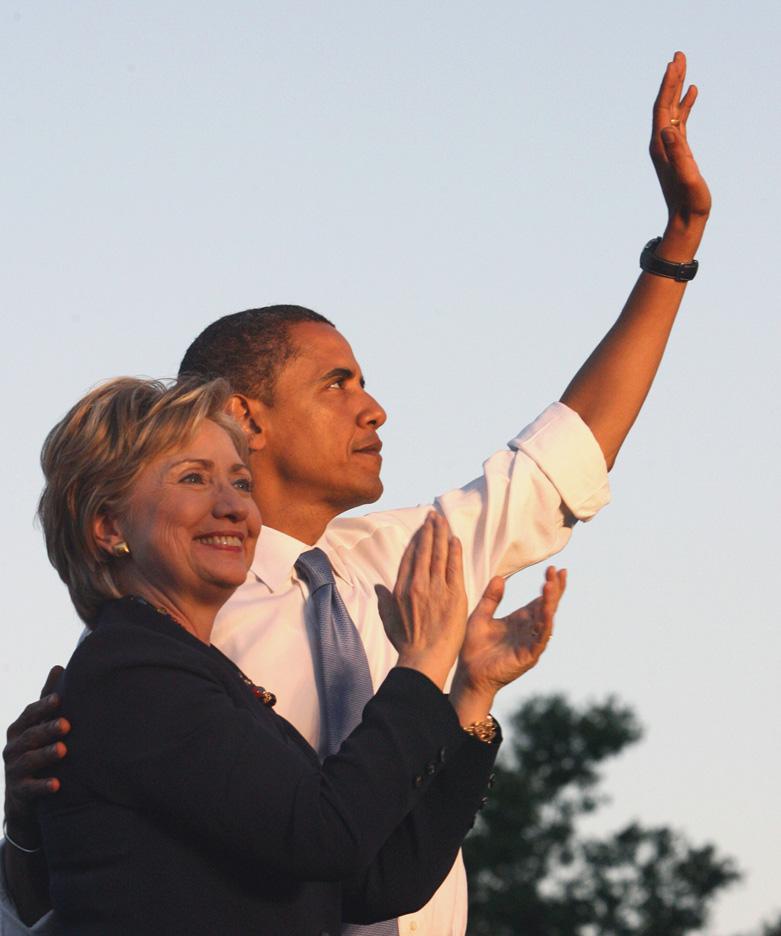Secretary Clinton? Not the Change We Need.
Is the Hawkish Senator Clinton Really the Best Fit for Obama’s New Diplomacy?
June 6, 2011
Published: December 11, 2008
On the campaign trail, Barack Obama promised a “Team of Rivals.” This was a reference to President Abraham Lincoln’s cabinet, which consisted of Lincoln’s major rivals for the Republican Presidential nomination. Open any history book, and you’ll learn that “yes men” don’t make wise leaders and that they often reach the same narrow conclusions. The thought of a team of smart, capable and passionate leaders sparring with each other was attractive to me, until I realized that it would include Hillary Clinton, Sen.-N.Y.

The United States’s current approach to foreign policy is a militarized one. For that reason, Obama’s promise to renew American diplomacy and rebuild alliances feels refreshing. What did Clinton promise? Last April, during one of the Democratic Presidential Debates, Clinton said that an unprovoked Iranian attack on Israel would be met with “massive retaliation” from the U.S. Clinton later clarified that “massive retaliation” means a “nuclear response.” That’s right. Our soon-to-be Secretary of State, who will occupy one of the most influential policy positions in the world, has previously used a discourse that employs threats of nuclear retaliation.
But what is there to worry about? After all, maybe Clinton was just playing domestic politics, and her statements will not be representative of her future foreign policy decisions. In that case, it’s a good thing that Clinton had the foresight to vote against the Iraq War, right? No. Unfortunately, Clinton was not one of the six U.S. Senators who actually read the 92-page National Intelligence Estimate before the vote to authorize the Iraq invasion. The NIE questioned the ties between the Iraqi government and Al-Qaeda. The briefings Clinton attended, organized by the Bush administration, did not.
Most troubling is that the person who will soon be the public face of America’s foreign policy has openly scoffed at the President-elect’s new approach to diplomacy. Just this past summer, Clinton was calling Obama naïve and irresponsible, while Obama criticized Clinton for espousing Bush’s foreign policy (by refusing to engage in dialogue with certain adversaries). Yes, candidates often say things during heated elections that they later regret, but how can Obama say that Clinton represents the old Washington in July and then appoint her to such an influential position in November? Furthermore, Clinton did a terrible job running her presidential campaign, but now she is deemed fit to run the State Department. That just doesn’t make sense.
No one told Obama supporters that “The Change We Need” meant the revival of the Clintons. If we wanted Clinton and the baggage her husband brings back in the White House, we would have given her the Democratic Presidential Nomination. For Clinton to serve as Secretary of State without a conflict of interests, former President Bill Clinton must give up his lucrative speechmaking overseas.
Bill Clinton has already agreed to disclose the donors to his multi-million dollar foundation. Thus far, we know that foreign governments which have given $1 million or more include Brunei, Kuwait, Norway, Qatar, Taiwan and the United Arab Emirates. The Saudi royal family has given $10 million. There was also much talk about Clinton’s trip to Kazakhstan in September 2005 with Canadian mining tycoon Frank Guistra. Guistra donated $130 million to the Clinton Foundation. After the trip, he flew away with preliminary agreements for his company to buy into state-owned uranium projects in Kazakhstan.
Perhaps I’m overreacting. After all, what politician doesn’t come with strings attached? Then again, I thought that we were voting for Obama because we wanted to see something different. To me, more fear-mongering, uninformed decision making and questionable ethics certainly sounds like more of the same.











